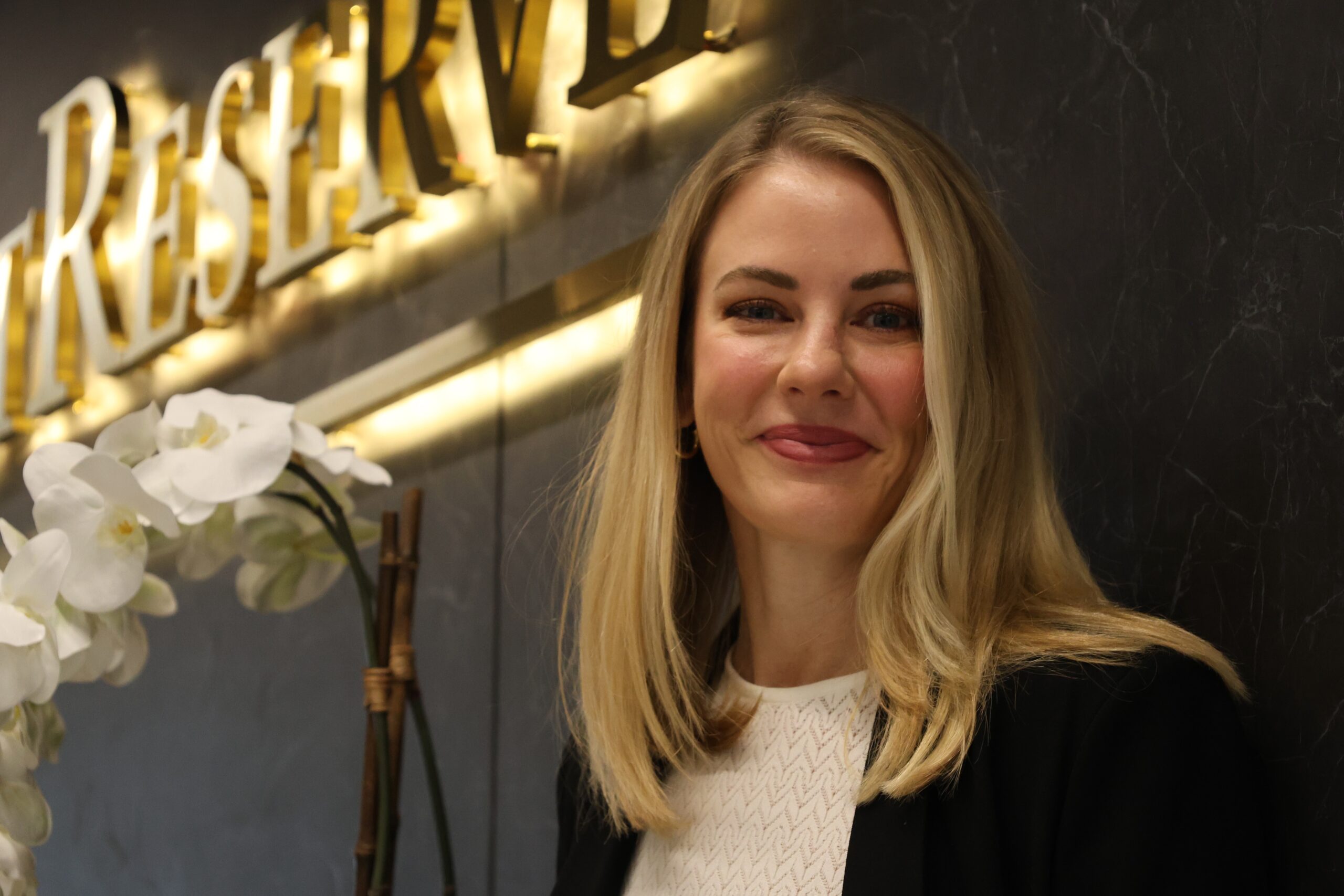When massive explosions rocked a chemical processing plant in Port Neches, Texas, thousands of nearby residents reeling from property damage and physical injuries allegedly related to the blasts and subsequent release of toxic chemicals quickly began suing those they believed to be responsible.
Within seven hours of the Nov. 27, 2019, incident, the first lawsuit had been filed. More than 7,000 plaintiffs represented by more than 50 law firms filed more than 2,000 lawsuits in total.
TPC Group, the operator of the facility, was sued.
So was then-plant manager Joshua Nehlig.
An engineering company, Ingenero, and an industrial services company, Nalco, were sued, too.
And then, about one year into the litigation, the plaintiffs decided to add TPC’s private equity investors to the lawsuit, alleging that they were liable for their damages based on their investments in the company. Specifically, the plaintiffs alleged the investors were responsible for TPC’s failure to perform maintenance that would have prevented the explosions — a decision the plaintiffs said was motivated by a desire to minimize expenses and improve TPC’s balance sheet for a future sale.
First Reserve Management, First Reserve Corporation, FR XII Alpha AIV, FR XII-A Alpha AIV, FR Sawgrass, Sawgrass Holdings, SK Sawgrass, SK Second Reserve and two other TPC-affiliated entities were added to the litigation in Orange County district court.
That’s when First Reserve teamed up with Vinson & Elkins to convince the courts that investors should not be held liable for the damages under state law.
The task wasn’t easy.

Orange County District Judge Courtney Arkeen denied First Reserve’s 91a motion to get out of the multidistrict litigation on Nov. 16, 2021. That ruling came the same month Erica Radcliffe joined First Reserve as its general counsel and chief compliance officer. She said she counted herself “lucky” that her predecessor, who retired, had hired Vinson & Elkins. First Reserve has turned to V&E as outside counsel on many matters through the years.
“They were great about spending the time getting me up to speed,” she told The Lawbook in a recent interview, noting that as a corporate lawyer by training, she relied on the team’s litigation expertise. “The team is excellent at distilling the complexities of the various procedural matters as well as the substance of our legal arguments. I like to stay plugged in, but it’s not practical or necessary for me to be involved in the day-to-day developments. The V&E team always strikes the right balance in keeping me informed at the right level.”
Another setback in the litigation came on Jan. 13, 2022, when a three-justice panel of the Ninth Court of Appeals in Beaumont agreed with Judge Arkeen’s decision.
First Reserve turned to the state’s court of last resort. In February 2023, the Texas Supreme Court heard oral arguments in the case.
And just days before the end of the high court’s term, on June 23, the ruling First Reserve had been waiting for was issued at 9 a.m.
Chief Justice Nathan Hecht, writing for the court, explained that the plaintiffs were not alleging First Reserve was actively running TPC based on its indirect ownership of the company.

“As long as companies are distinct legal entities, they are not liable for each other’s conduct unless some exception applies to remove this limited liability,” the court held. “Nor can plaintiffs base their claim on First Reserve’s right to appoint members to the [general partner] board. Even when one company appoints a loyal employee to the board of a separate legal entity, the appointing company does not become liable for the board’s conduct.”
“Because liability cannot be based on First Reserve’s ownership interest in TPC, its appointments to the GP board, or any other action that is consistent with its investor status, plaintiffs must have pleaded facts showing that First Reserve undertook in other ways to run TPC’s day-to-day operations and, specifically, to delay the turnaround that could have prevented the explosions.”
The court’s ruling was unanimous, 8-0. Justice Jeff Boyd concurred only in the disposition of the case and Justice Jane Bland didn’t participate.
The ruling was huge, and not just for First Reserve, as Vinson & Elkins’ partner Chris Popov explained.
“The opinion is a wholesale rejection of the theory that ordinary board governance can lead to direct liability for parent companies and investors,” he said. “And importantly, the court held that these legal standards are enforced at the pleadings stage. People familiar with corporate law may think this holding is self-evident, but in practice, trial courts frequently require PE sponsors and parent companies to defend these kinds of claims through discovery even when there is no basis for the claim as a matter of law.”
“This decision should make it easier for companies to win dismissal of unjustified claims like these earlier in the process.”
The Association of Corporate Counsel’s Houston Chapter and The Texas Lawbook have named Radcliffe, First Reserve and its outside counsel at Vinson & Elkins as one of three finalists for the 2024 Houston Corporate Counsel Award for Business Litigation of the Year.
ACC Houston and The Lawbook will honor the finalists and announce the winners May 15.
Radcliffe’s Route to First Reserve
Radcliffe was born into a multinational household: Her father a U.S. citizen and her mother a citizen of the United Kingdom.
Her father worked as an engineer for an offshore engineering and construction company, which meant she moved around quite a bit in her childhood, going from her birthplace of Brussels, Belgium, to southeast Louisiana, to Dubai and, eventually, to Texas.
Her older sister’s experience, attending law school and working as a summer associate at a Big Law firm in Houston, influenced Radcliffe to consider a legal career.
But after Radcliffe earned her bachelor’s degree from the University of Texas at Austin in 2003, she wasn’t certain law school was the right path for her. So, she went to work as a recruiter for Sutherland Asbill & Brennan in Atlanta and stayed there for about two and a half years.
“I spoke to all variety of lawyers — including many that no longer practiced,” she said. “Law school was a heavy financial undertaking, and I didn’t want to make the wrong choice. But what I learned was that nobody seemed to regret getting their law degree, even if being a lawyer was not ultimately right for them. Everyone seemed to agree that law school provided a valuable education of critical and analytical thought that could be applied to any career.”

In 2009, she graduated from the University of Texas School of Law.
Her first job after graduation was as an associate at Bracewell, and in September 2013, she moved to Latham & Watkins.
“I was a capital markets associate in the MLP IPO craze of the mid-2010s, which was intense and exciting,” Radcliffe said. “It was also pretty exhausting, and I felt like I never knew if I could reliably commit to plans outside of work.”
In September 2015, she moved in-house for Buckeye Partners as associate general counsel.
“When my first daughter was born in 2015, I really desired more predictability in my schedule,” she said of the move. “The in-house pace can still be cyclical and demanding, but I tend to know a bit more in advance when the busiest times are coming.”
In April 2019, she joined Five Point Energy as general counsel and then moved to First Reserve in November 2021 to become its general counsel and chief compliance officer.
“First Reserve was looking for a general counsel to replace its long-term GC after her retirement — the search was mostly through word of mouth,” Radcliffe said. “At the time, changing jobs was the furthest thing from my mind, but several trusted connections of mine reached out and it all ended up feeling pretty kismet.”
“It’s a great culture fit for me, and I place that on the top of my wish list for any job.”
Jennifer Grant Cooper and Leor Landa of Davis Polk & Wardell were quick to praise Radcliffe’s legal skills.
“Erica brings to the table sharp business judgment,” they said in an email. “That, combined with her excellent technical legal background and her practical abilities to get things done, makes her extremely effective in her role as a GC.”
They noted that it didn’t take long for her to gain the trust and respect of senior firm management after joining First Reserve.
“Erica is a pleasure to work with. She is thoughtful in her approach to legal questions, quickly gets to the bottom of business and legal issues and is dedicated to finding the best paths forward for First Reserve in complex situations, allowing the firm to reach its business goals while effectively managing legal and compliance risks,” Cooper and Landa wrote.
Looming Litigation
In December 2022, the U.S. Chemical Safety and Hazard Investigation Board issued its final investigation report detailing the causes of the explosions and fires that burned inside the TPC facility for more than a month.
A dangerous substance called “popcorn polymer” had built up and “exponentially expanded” inside some piping to the point that it ruptured the pipe and released 6,000 gallons of highly flammable butadiene from the process unit. Popcorn polymer, which resembles popcorn or cauliflower, forms inside equipment that handles high-purity butadiene, like that used at TPC.
Butadiene is a gas that is used in the manufacturing of synthetic rubber.
The explosions’ force caused four process towers to fall and launched a fifth through the air before it landed back on TPC grounds. The incident kept nearby schools closed for an additional week after Thanksgiving break to clean up debris and repair school buildings. It also reduced usage of the nation’s third-largest waterway by cargo volume: the Sabine-Neches Waterway.
Getting a win in the litigation was paramount, Radcliffe said.
“The idea of holding a financial sponsor responsible for a tort occurring at a portfolio company based only on its industry standard investment practices contradicts firmly established principles of corporate limited liability,” Radcliffe said of the stakes. “I think there was rightfully a concern that the lower courts’ decisions could be detrimental to private investment activity in Texas by making Texas an outlier in corporate law.”

While she didn’t choose to hire Vinson & Elkins for this case, she said the legal team fit the mold of what she looks for when hiring outside counsel.
“I appreciate working with pragmatic lawyers who aren’t hesitant to provide recommendations,” she said. “Lawyers sometimes get criticized in the corporate world for only pointing to reasons why not to do something, which isn’t always constructive. I value being advised of risks but also pairing that advice with some practical and commercial realism. I try to do the same in my practice.”
Radcliffe’s role in the case was to serve as an intermediary between the V&E litigation team and her business colleagues at First Reserve. She kept apprised of proceedings, managed risks and processed it all “from an internal standpoint” before funneling that information to the business team.
Echoing the trial court, the Ninth Court of Appeals issued a three-page ruling allowing the lawsuit to proceed, explaining that the plaintiffs’ 63-page petition “contains statements that, in plain and concise language, set out the causes of action on which plaintiffs are basing their suit.”
“At this early stage, we (like the trial court) are required to take the factual allegations the plaintiffs included in their petition and assume they are true,” the panel wrote in the per curiam opinion.
Popov and the V&E team had to turn to the Texas Supreme Court and got two groups on board as amici supporting First Reserve’s arguments: The U.S. Chamber of Commerce and the American Investment Council, the nation’s leading trade association of private equity firms.
The team also had to navigate what it meant when TPC filed for bankruptcy protection in Delaware as the litigation was ongoing.
“As part of TPC’s reorganization plan, the bankruptcy court held that the alter ego claims belonged to TPC’s estate and enjoined the plaintiffs in our case from prosecuting those claims,” Popov said. “For that reason, the bankruptcy court declined to address the alter ego claims.”
In the end, the appeal was a success, and Popov said the Texas Supreme Court’s ruling provides a roadmap for other investors on how they can protect themselves from liability under the state’s negligent undertaking doctrine.
“Thanks to this opinion, investors won’t have to worry about being taken to court for merely holding ownership interest in a portfolio company, appointing directors to its board, or engaging in industry-standard investment practices — like monitoring the portfolio company’s performance, supervising finance and capital budget decisions, or articulating general policies and procedures.”
“As much as the Texas Supreme Court’s decision was a victory on the substance, it was also a victory for procedure,” Popov said. “Instead of having to engage in discovery for thousands of claims, litigate for years, and possibly appeal a decision to protect our client’s rights, we were able to do so at the pleadings stage.”
